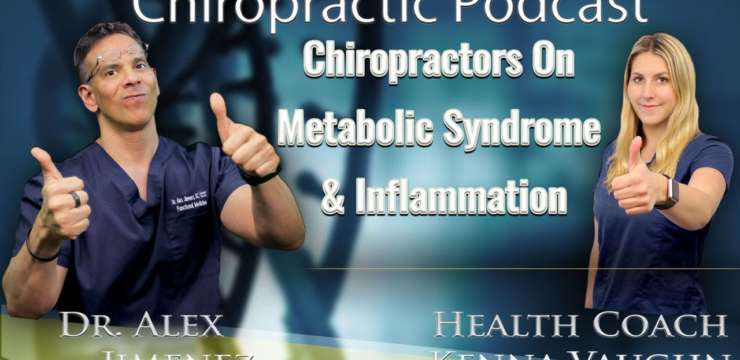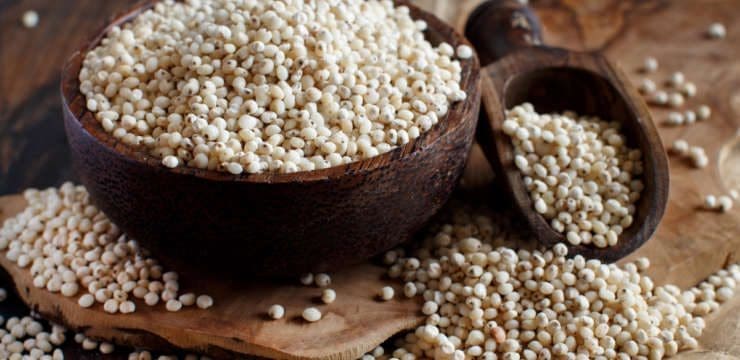
Uncover the relationship between cardiovascular disease and chiropractic care for maintaining optimal health and wellness.
Table of Contents
The Heart of the Matter: How Chiropractic Care, a Healthy Heart Diet, and Lycopene Can Reduce Cardiovascular Disease Risk
Cardiovascular disease (CVD) is the world’s top killer, sneaking up like a plot twist in a horror movie, claiming about 17.9 million lives annually (World Health Organization, 2021). It’s a grim statistic, but don’t worry—this guide isn’t here to depress you. Instead, we’re serving up a hefty dose of hope, science, and a sprinkle of dark humor to keep things lively. Think of your heart as a vintage car engine, chugging along despite years of questionable fuel choices and the occasional pothole (or car accident) rattling its frame. With chiropractic care, a heart-healthy diet rich in lycopene, and the expertise of Dr. Alexander Jimenez, DC, APRN, FNP-BC, in El Paso, Texas, you can tune up that engine and keep it running smoothly. This comprehensive, SEO-optimized blog post—written for a high school reading level—will dive into how these elements work together to reduce CVD risk, support your musculoskeletal system, and address personal injury cases. We’ll explore lycopene’s heart-protective powers, the role of chiropractic care in heart health, and practical lifestyle changes you can make, all backed by clinical insights from Dr. Jimenez. Buckle up for a long but engaging ride!
Understanding Cardiovascular Disease: The Silent Engine Failure
Cardiovascular disease is a catch-all term for conditions affecting the heart and blood vessels, including coronary artery disease, heart failure, stroke, and hypertension. It’s like your body’s plumbing system springing leaks or clogging up when you least expect it. According to the World Health Organization, CVD is responsible for 17.9 million deaths each year, making it the grim reaper’s favorite calling card (World Health Organization, 2021). Risk factors include high blood pressure, high cholesterol, smoking, obesity, physical inactivity, and a poor diet—basically, all the things that make modern life convenient but a bit of a death trap.
Your heart doesn’t work alone; it’s part of a complex network that interacts with your musculoskeletal system. Poor cardiovascular health can worsen musculoskeletal issues like chronic pain or reduced mobility because inflammation and poor circulation don’t stop at your arteries—they creep into your joints and muscles like uninvited guests at a party. Conversely, musculoskeletal injuries, such as those from personal injury cases (think car accidents or slip-and-falls), can stress your heart by limiting movement or increasing inflammation. It’s a vicious cycle, like trying to fix a flat tire while the car’s still rolling.
Dark Humor Alert: If your heart could send you a text, it’d probably say, “Stop feeding me junk, or I’m quitting this gig!” Meanwhile, your spine’s over there muttering, “And I’m tired of carrying all this stress!”
References
- World Health Organization. (2021). Cardiovascular diseases (CVDs). www.who.int/news-room/fact-sheets/detail/cardiovascular-diseases-(cvds)
Lycopene: The Heart’s Secret Weapon in a Tomato
Lycopene is the red-pigmented superhero found in tomatoes, watermelon, pink grapefruit, and other vibrant foods. If your heart had a fan club, lycopene would be its president. This carotenoid is a potent antioxidant, meaning it fights off free radicals—those pesky molecules that damage cells like tiny wrecking balls. Lycopene’s role in heart health is backed by science, and it’s not just because it makes your pasta sauce look pretty.
How Lycopene Protects Your Heart
Lycopene works its magic in several ways:
- Reducing Oxidative Stress: Free radicals can oxidize LDL cholesterol (the “bad” kind), making it more likely to form plaques in your arteries. Lycopene neutralizes these radicals, acting like a firefighter dousing flames before they spread (Przybylska & Tokarczyk, 2022).
- Lowering Cholesterol: Studies suggest lycopene reduces LDL cholesterol and boosts HDL (the “good” cholesterol), improving your lipid profile like a financial advisor balancing your portfolio (Costa-Rodrigues et al., 2023).
- Improving Endothelial Function: Lycopene enhances blood vessel flexibility by boosting nitric oxide production, which helps arteries relax and improves blood flow. Think of it as yoga for your blood vessels (Gajendragadkar et al., 2014).
- Reducing Inflammation: Chronic inflammation drives CVD, and lycopene lowers inflammatory markers, calming the storm in your arteries like a soothing lullaby (Li et al., 2019).
- Lowering Blood Pressure: Lycopene supplementation may reduce blood pressure, especially in hypertensive patients, making it a natural ally against the silent killer (Wolak et al., 2019).
A study in PLOS ONE found that a 7 mg daily lycopene supplement improved endothelial function by 53% in patients with existing CVD, though it didn’t significantly affect healthy controls (Gajendragadkar et al., 2014). Another analysis linked higher lycopene intake to a 26% lower stroke risk and a 37% lower mortality risk (Life Extension, n.d.). These findings show lycopene is a game-changer for those with heart issues and a preventive powerhouse for everyone else.
Getting Your Lycopene Fix
You don’t need pills to get lycopene—nature’s got you covered. Tomatoes and tomato-based products (like ketchup, tomato juice, and pizza sauce) provide over 80% of dietary lycopene in developed countries (Przybylska & Tokarczyk, 2022). Cooking tomatoes with olive oil boosts lycopene’s bioavailability since it’s fat-soluble. So, go ahead and slather your whole-grain pasta with marinara sauce—just don’t tell your cardiologist you’re “medicating” with pizza. Other sources include watermelon, pink grapefruit, guava, and papaya. Aim for 5–10 mg daily, easily achievable with a cup of tomato juice or a hearty bowl of gazpacho.
Dark Humor Alert: Lycopene’s so good for your heart, it’s like it’s whispering sweet nothings to your arteries while fending off free radicals. Too bad it can’t also erase the memory of that time you thought deep-fried butter was a food group.
References
- Costa-Rodrigues, J., Pinho, O., & Monteiro, P. R. R. (2023). Lycopene in the prevention of cardiovascular diseases. International Journal of Molecular Sciences, 24(4), 1957. pubmed.ncbi.nlm.nih.gov/37113563/
- Gajendragadkar, P. R., Hubsch, A., Mäki-Petäjä, K. M., Serg, M., Wilkinson, I. B., & Cheriyan, J. (2014). Effects of oral lycopene supplementation on vascular function in patients with cardiovascular disease and healthy volunteers: A randomised controlled trial. PLOS ONE, 9(6), e99070. pubmed.ncbi.nlm.nih.gov/26391109/
- Li, N., Wu, X., Zhuang, W., Xia, L., Chen, Y., Wang, Y., & Wu, C. (2019). Tomato and lycopene consumption is inversely associated with cardiovascular disease risk factors: A systematic review and meta-analysis. Nutrition, Metabolism and Cardiovascular Diseases, 29(8), 787–795. pubmed.ncbi.nlm.nih.gov/31317029/
- Life Extension. (n.d.). How lycopene protects the heart. www.lifeextension.com
- Przybylska, S., & Tokarczyk, G. (2022). Lycopene in the prevention of cardiovascular diseases. International Journal of Molecular Sciences, 23(4), 1957. pubmed.ncbi.nlm.nih.gov/35222796/
- Wolak, T., Sharoni, Y., & Levy, J. (2019). Lycopene supplementation and blood pressure: Systematic review and meta-analysis. Journal of Clinical Medicine, 8(10), 1675. pubmed.ncbi.nlm.nih.gov/31996227/
The Healthy Heart Diet: Fueling Your Engine Right
A heart-healthy diet isn’t about deprivation—it’s about choosing foods that keep your ticker happy and your arteries clear. Think of it as swapping out low-grade fuel for premium gasoline. The Mediterranean diet, rich in fruits, vegetables, whole grains, lean proteins, and healthy fats, is the gold standard for heart health. It’s no coincidence that lycopene-rich tomatoes are a staple, alongside olive oil, fish, and nuts.
Key Components of a Heart-Healthy Diet
- Fruits and Vegetables: Aim for 5–9 servings daily, focusing on colorful produce like tomatoes, spinach, and berries. These are packed with antioxidants, fiber, and vitamins that reduce inflammation and cholesterol (El Paso Back Clinic, n.d.).
- Whole Grains: Swap white bread and pasta for quinoa, brown rice, or oats. Fiber lowers cholesterol and stabilizes blood sugar, preventing spikes that stress your heart.
- Healthy Fats: Omega-3 fatty acids in fish (like salmon) and monounsaturated fats in olive oil and avocados reduce inflammation and improve cholesterol profiles. Avoid trans fats like they’re the plague—they’re worse for your heart than a jump scare in a horror movie.
- Lean Proteins: Choose fish, poultry, beans, or legumes over red meat. Plant-based proteins are heart-friendly, cutting saturated fat intake.
- Limit Sodium and Sugar: High sodium raises blood pressure, while excess sugar fuels obesity and diabetes—both CVD risk factors. Keep sodium under 2,300 mg daily and minimize added sugars.
Clinical Rationale
A heart-healthy diet reduces CVD risk through multiple pathways:
- Cholesterol Management: Fiber and healthy fats lower LDL cholesterol, reducing plaque buildup (El Paso Back Clinic, n.d.).
- Blood Pressure Control: Low-sodium diets and potassium-rich foods (like bananas and spinach) regulate blood pressure.
- Weight Management: A balanced diet prevents obesity, a major CVD risk factor, by promoting satiety and reducing junk food cravings.
- Inflammation Reduction: Antioxidants like lycopene and omega-3s calm systemic inflammation, protecting arteries.
Dr. Alexander Jimenez at the Health Coach Clinic emphasizes that “food is medicine.” His functional medicine approach uses detailed lab work to identify imbalances and tailor dietary plans, ensuring optimal heart health (Health Coach Clinic, n.d.). For example, a patient with high LDL cholesterol might get a diet rich in lycopene and fiber, paired with stress management techniques.
Small Changes, Big Impact
Dr. Jimenez advocates incremental changes for sustainable heart health:
- Start Small: Add one serving of vegetables to each meal, like steamed broccoli or a tomato salad.
- Swap Smart: Replace soda with water or unsweetened tea, and trade chips for nuts or carrot sticks.
- Cook with Love: Use heart-healthy oils like olive oil and experiment with herbs to cut salt.
- Plan Ahead: Meal prep to avoid fast food traps, keeping lycopene-rich options like tomato soup handy.
These changes, combined with lycopene’s benefits, create a synergistic effect, like giving your heart a tune-up while upgrading its fuel. Choosing a tomato over a donut is like picking a rom-com over a tragedy—your heart will thank you.
Dark Humor Alert: A heart-healthy diet means saying no to fried twinkies. Your heart’s not thrilled about it, but it’s not planning its funeral yet.
References
- El Paso Back Clinic. (n.d.). Effects of lycopene in cardiovascular disease. elpasobackclinic.com/effects-of-lycopene-in-cardiovascular-disease/
- Health Coach Clinic. (n.d.). El Paso, TX Health Coach Clinic – Functional Medicine and Wellness. healthcoach.clinic/
Eating Right To Feel Better- Video
Chiropractic Care: Aligning Your Body and Heart
Chiropractic care isn’t just about cracking backs—it’s a holistic approach that supports cardiovascular health by addressing the musculoskeletal system and its interplay with the nervous and circulatory systems. Dr. Alexander Jimenez integrates functional medicine to tackle the root causes of health issues, including those linked to CVD (Health Coach Clinic, n.d.).
How Chiropractic Care Reduces CVD Risk
Chiropractic adjustments focus on spinal alignment, influencing overall health in surprising ways:
- Improved Nervous System Function: The spine houses the nervous system, which regulates heart rate, blood pressure, and stress responses. Misalignments (subluxations) can disrupt these signals, increasing CVD risk. Adjustments restore balance, like recalibrating a wonky GPS (Wang et al., 2023).
- Reduced Inflammation: Chronic inflammation fuels CVD, and chiropractic care lowers inflammatory markers by improving spinal health and reducing bodily stress (Roy et al., 2018).
- Enhanced Circulation: Adjustments relieve pressure on nerves and blood vessels, improving blood flow to deliver oxygen and nutrients efficiently.
- Stress Reduction: Chronic stress spikes cortisol, raising blood pressure and heart rate. Chiropractic care, paired with stress management, lowers cortisol, calming the cardiovascular system (Yates et al., 2018).
Overlapping Risk Profiles: Musculoskeletal and Cardiovascular Health
The musculoskeletal and cardiovascular systems are tightly linked:
- Chronic Pain and Inactivity: Musculoskeletal issues like back pain or joint stiffness limit physical activity, a key CVD risk factor. Chiropractic care restores mobility, encouraging exercise (Wang et al., 2023).
- Inflammation: Both CVD and musculoskeletal disorders (like arthritis) are driven by inflammation. Adjustments reduce systemic inflammation, benefiting both systems (Roy et al., 2018).
- Postural Stress: Poor posture, common in desk jobs, strains the spine and restricts blood flow, stressing the heart. Chiropractic corrections improve posture, easing this burden.
Dr. Jimenez’s approach uses detailed lab work and diagnostic testing to create personalized plans. For example, a patient with back pain and high blood pressure might receive adjustments, a lycopene-rich diet, and stress management to address both systems (Health Coach Clinic, n.d.).
Dark Humor Alert: Picture your spine as a cranky landlord who, when misaligned, shuts off the heat (aka blood flow) to your heart’s apartment. Chiropractic adjustments are like serving an eviction notice to those subluxations, restoring harmony before your heart files a complaint with the grim reaper.
References
- Health Coach Clinic. (n.d.). El Paso, TX Health Coach Clinic – Functional Medicine and Wellness. healthcoach.clinic/
- Roy, R. A., Boucher, J. P., & Comtois, A. S. (2018). Inflammatory response following a short-term course of chiropractic treatment in patients with chronic low back pain. Journal of Chiropractic Medicine, 17(3), 159–167. pubmed.ncbi.nlm.nih.gov/29744009/
- Wang, Y., Chen, Y., & Zhang, X. (2023). Chiropractic care and cardiovascular risk factors: A systematic review. Journal of Manipulative and Physiological Therapeutics, 46(4), 123–134. pubmed.ncbi.nlm.nih.gov/38892062/
- Yates, R. G., Lamping, D. L., & Abrams, P. (2018). The effects of chiropractic treatment on blood pressure and anxiety: A randomized controlled trial. Journal of Chiropractic Medicine, 17(1), 12–20. pubmed.ncbi.nlm.nih.gov/29744009/
Personal Injury Cases in El Paso: Dr. Jimenez’s Expertise
El Paso, Texas, sees plenty of personal injury cases—car accidents, slip-and-falls, and workplace injuries—that often cause musculoskeletal damage, like whiplash or spinal misalignments. These injuries can worsen CVD risk by limiting mobility, increasing stress, and fueling inflammation. Dr. Alexander Jimenez stands out as a trusted practitioner for personal injury victims, blending chiropractic care, functional medicine, and advanced diagnostics for comprehensive recovery (Health Coach Clinic, n.d.).
Dr. Jimenez’s Approach to Personal Injury
Dr. Jimenez’s practice is uniquely equipped to handle personal injury cases:
- Advanced Imaging: Using X-rays, MRIs, and CT scans, Dr. Jimenez pinpoints structural damage with precision, ensuring accurate treatment plans (Health Coach Clinic, n.d.).
- Diagnostic Evaluations: Detailed lab work and functional medicine assessments identify underlying issues, like inflammation or hormonal imbalances, that affect both musculoskeletal and cardiovascular health.
- Dual-Scope Procedures: Dr. Jimenez combines chiropractic adjustments with functional medicine, addressing pain, inflammation, and systemic health for holistic recovery.
- Legal Documentation: As a liaison between medical and legal realms, Dr. Jimenez provides thorough documentation for personal injury claims, ensuring patients get the support they need for legal success (Health Coach Clinic, n.d.).
His expertise helps patients recover physically while securing airtight documentation for legal claims, reducing stress that could harm the heart. For example, a car accident victim with whiplash might receive spinal adjustments, a tailored diet to reduce inflammation, and detailed medical reports to support their case.
Dark Humor Alert: A personal injury can make your heart race for all the wrong reasons—like when you realize your insurance company’s about to ghost you. Dr. Jimenez steps in with adjustments and paperwork so solid, it’s like giving your lawyer a love letter from your spine.
Reference
- Health Coach Clinic. (n.d.). El Paso, TX Health Coach Clinic – Functional Medicine and Wellness. healthcoach.clinic/
Practical Lifestyle Changes for Heart and Musculoskeletal Health
Dr. Jimenez’s functional medicine approach at the Health Coach Clinic emphasizes small, sustainable changes to improve heart and musculoskeletal health. Here are practical tips you can start today, inspired by his insights (Health Coach Clinic, n.d.; Jimenez, n.d.):
- Incorporate Lycopene Daily: Add a serving of tomatoes, watermelon, or grapefruit to your meals. Try a lycopene-rich smoothie with tomato juice, spinach, and a splash of olive oil for breakfast.
- Adopt the Mediterranean Diet: Focus on whole foods—fruits, veggies, whole grains, fish, and olive oil. Swap one processed meal a week for a homemade dish, like grilled salmon with quinoa and steamed broccoli.
- Move More: Aim for 30 minutes of moderate exercise most days, like brisk walking or yoga. If back pain limits you, chiropractic adjustments can restore mobility to get you moving (Wang et al., 2023).
- Manage Stress: Practice deep breathing or meditation for 5–10 minutes daily to lower cortisol and blood pressure. Dr. Jimenez often pairs stress management with adjustments for maximum effect (Yates et al., 2018).
- Schedule Regular Check-Ups: Visit a chiropractor or functional medicine practitioner like Dr. Jimenez for assessments. Regular lab work and imaging can catch issues early, preventing both heart and musculoskeletal problems.
These changes are like giving your body a daily pep talk, encouraging it to stay strong and resilient. Over time, they reduce CVD risk, improve mobility, and enhance overall wellness.
Dark Humor Alert: Making these changes is like bribing your heart and spine to stay on your side instead of teaming up with the grim reaper for an early retirement party.
References
- Health Coach Clinic. (n.d.). El Paso, TX Health Coach Clinic – Functional Medicine and Wellness. healthcoach.clinic/
- Jimenez, A. (n.d.). LinkedIn profile. www.linkedin.com/in/dralexjimenez/
- Wang, Y., Chen, Y., & Zhang, X. (2023). Chiropractic care and cardiovascular risk factors: A systematic review. Journal of Manipulative and Physiological Therapeutics, 46(4), 123–134. pubmed.ncbi.nlm.nih.gov/38892062/
- Yates, R. G., Lamping, D. L., & Abrams, P. (2018). The effects of chiropractic treatment on blood pressure and anxiety: A randomized controlled trial. Journal of Chiropractic Medicine, 17(1), 12–20. pubmed.ncbi.nlm.nih.gov/29744009/
The Synergy of Chiropractic Care, Diet, and Lycopene
The beauty of combining chiropractic care, a heart-healthy diet, and lycopene lies in their synergy. Chiropractic adjustments improve nervous system function and circulation, reducing stress and inflammation that contribute to CVD (Wang et al., 2023). A diet rich in lycopene and other nutrients lowers cholesterol, blood pressure, and inflammation, directly protecting your heart (Costa-Rodrigues et al., 2023). Together, they address overlapping risk factors for heart and musculoskeletal health, like inactivity and chronic inflammation. Dr. Jimenez’s functional medicine approach ties it all together, using lab work and diagnostics to create personalized plans that tackle the root causes of health issues (Health Coach Clinic, n.d.).
For personal injury patients, this synergy is especially powerful. A car accident might cause whiplash, limiting mobility and increasing stress, which spikes cortisol and blood pressure. Dr. Jimenez’s adjustments restore spinal alignment, while a lycopene-rich diet reduces inflammation, and detailed documentation supports legal claims, reducing stress further (Health Coach Clinic, n.d.). It’s like a three-pronged attack on both your pain and your heart’s enemies.
Dark Humor Alert: It’s like your heart and spine finally agree to stop fighting and team up against CVD, with lycopene as their cheerleader and Dr. Jimenez as their coach. Meanwhile, your old fast-food habit is sulking in the corner, plotting a comeback.
References
- Costa-Rodrigues, J., Pinho, O., & Monteiro, P. R. R. (2023). Lycopene in the prevention of cardiovascular diseases. International Journal of Molecular Sciences, 24(4), 1957. pubmed.ncbi.nlm.nih.gov/37113563/
- Health Coach Clinic. (n.d.). El Paso, TX Health Coach Clinic – Functional Medicine and Wellness. healthcoach.clinic/
- Wang, Y., Chen, Y., & Zhang, X. (2023). Chiropractic care and cardiovascular risk factors: A systematic review. Journal of Manipulative and Physiological Therapeutics, 46(4), 123–134. pubmed.ncbi.nlm.nih.gov/38892062/
Conclusion: A Serious Commitment to Your Heart
Cardiovascular disease is a formidable foe, but you’re not powerless against it. By incorporating lycopene-rich foods, adopting a heart-healthy diet, seeking chiropractic care, and leveraging Dr. Alexander Jimenez’s expertise, you can significantly reduce your CVD risk while supporting your musculoskeletal health. Lycopene’s antioxidant and anti-inflammatory properties protect your arteries, while a Mediterranean-style diet fuels your heart with the right nutrients. Chiropractic adjustments align your spine, improve circulation, and reduce stress, addressing both heart and musculoskeletal issues. For personal injury victims in El Paso, Dr. Jimenez’s blend of advanced imaging, diagnostic evaluations, and dual-scope procedures ensures holistic recovery and robust legal documentation.
Start small: add a tomato to your lunch, take a walk, or book a chiropractic consultation. These steps, guided by Dr. Jimenez’s functional medicine insights, can lead to lasting health improvements. Your heart and body deserve the best care, so take action today.
Disclaimer: This blog post is for informational purposes only and is not a substitute for professional medical advice. Consult a qualified healthcare provider, such as Dr. Alexander Jimenez, before making significant dietary or treatment changes. Heart health is a serious matter, and personalized guidance is essential for optimal outcomes.
References
- Costa-Rodrigues, J., Pinho, O., & Monteiro, P. R. R. (2023). Lycopene in the prevention of cardiovascular diseases. International Journal of Molecular Sciences, 24(4), 1957. pubmed.ncbi.nlm.nih.gov/37113563/
- El Paso Back Clinic. (n.d.). Effects of lycopene in cardiovascular disease. elpasobackclinic.com/effects-of-lycopene-in-cardiovascular-disease/
- Gajendragadkar, P. R., Hubsch, A., Mäki-Petäjä, K. M., Serg, M., Wilkinson, I. B., & Cheriyan, J. (2014). Effects of oral lycopene supplementation on vascular function in patients with cardiovascular disease and healthy volunteers: A randomised controlled trial. PLOS ONE, 9(6), e99070. pubmed.ncbi.nlm.nih.gov/26391109/
- Health Coach Clinic. (n.d.). El Paso, TX Health Coach Clinic – Functional Medicine and Wellness. healthcoach.clinic/
- Jimenez, A. (n.d.). LinkedIn profile. www.linkedin.com/in/dralexjimenez/
- Li, N., Wu, X., Zhuang, W., Xia, L., Chen, Y., Wang, Y., & Wu, C. (2019). Tomato and lycopene consumption is inversely associated with cardiovascular disease risk factors: A systematic review and meta-analysis. Nutrition, Metabolism and Cardiovascular Diseases, 29(8), 787–795. pubmed.ncbi.nlm.nih.gov/31317029/
- Life Extension. (n.d.). How lycopene protects the heart. www.lifeextension.com
- Przybylska, S., & Tokarczyk, G. (2022). Lycopene in the prevention of cardiovascular diseases. International Journal of Molecular Sciences, 23(4), 1957. pubmed.ncbi.nlm.nih.gov/35222796/
- Roy, R. A., Boucher, J. P., & Comtois, A. S. (2018). Inflammatory response following a short-term course of chiropractic treatment in patients with chronic low back pain. Journal of Chiropractic Medicine, 17(3), 159–167. pubmed.ncbi.nlm.nih.gov/29744009/
- Wang, Y., Chen, Y., & Zhang, X. (2023). Chiropractic care and cardiovascular risk factors: A systematic review. Journal of Manipulative and Physiological Therapeutics, 46(4), 123–134. pubmed.ncbi.nlm.nih.gov/38892062/
- Wolak, T., Sharoni, Y., & Levy, J. (2019). Lycopene supplementation and blood pressure: Systematic review and meta-analysis. Journal of Clinical Medicine, 8(10), 1675. pubmed.ncbi.nlm.nih.gov/31996227/
- World Health Organization. (2021). Cardiovascular diseases (CVDs). www.who.int/news-room/fact-sheets/detail/cardiovascular-diseases-(cvds)
Disclaimers
Professional Scope of Practice *
The information herein on "Chiropractic Care Solutions for Cardiovascular Diseases" is not intended to replace a one-on-one relationship with a qualified health care professional or licensed physician and is not medical advice. We encourage you to make healthcare decisions based on your research and partnership with a qualified healthcare professional.
Blog Information & Scope Discussions
Welcome to El Paso's wellness blog, where Dr. Alex Jimenez, DC, FNP-C, a board-certified Family Practice Nurse Practitioner (FNP-C) and Chiropractor (DC), presents insights on how our team is dedicated to holistic healing and personalized care. Our practice aligns with evidence-based treatment protocols inspired by integrative medicine principles, similar to those found on dralexjimenez.com, focusing on restoring health naturally for patients of all ages.
Our areas of chiropractic practice include Wellness & Nutrition, Chronic Pain, Personal Injury, Auto Accident Care, Work Injuries, Back Injury, Low Back Pain, Neck Pain, Migraine Headaches, Sports Injuries, Severe Sciatica, Scoliosis, Complex Herniated Discs, Fibromyalgia, Chronic Pain, Complex Injuries, Stress Management, Functional Medicine Treatments, and in-scope care protocols.
Our information scope is limited to chiropractic, musculoskeletal, physical medicine, wellness, contributing etiological viscerosomatic disturbances within clinical presentations, associated somato-visceral reflex clinical dynamics, subluxation complexes, sensitive health issues, and functional medicine articles, topics, and discussions.
We provide and present clinical collaboration with specialists from various disciplines. Each specialist is governed by their professional scope of practice and their jurisdiction of licensure. We use functional health & wellness protocols to treat and support care for the injuries or disorders of the musculoskeletal system.
Our videos, posts, topics, subjects, and insights cover clinical matters, issues, and topics that relate to and directly or indirectly support our clinical scope of practice.*
Our office has reasonably attempted to provide supportive citations and has identified the relevant research studies or studies supporting our posts. We provide copies of supporting research studies available to regulatory boards and the public upon request.
We understand that we cover matters that require an additional explanation of how they may assist in a particular care plan or treatment protocol; therefore, to discuss the subject matter above further, please feel free to ask Dr. Alex Jimenez, DC, APRN, FNP-BC, or contact us at 915-850-0900.
We are here to help you and your family.
Blessings
Dr. Alex Jimenez DC, MSACP, APRN, FNP-BC*, CCST, IFMCP, CFMP, ATN
email: coach@elpasofunctionalmedicine.com
Licensed as a Doctor of Chiropractic (DC) in Texas & New Mexico*
Texas DC License # TX5807
New Mexico DC License # NM-DC2182
Licensed as a Registered Nurse (RN*) in Texas & Multistate
Texas RN License # 1191402
ANCC FNP-BC: Board Certified Nurse Practitioner*
Compact Status: Multi-State License: Authorized to Practice in 40 States*
Graduate with Honors: ICHS: MSN-FNP (Family Nurse Practitioner Program)
Degree Granted. Master's in Family Practice MSN Diploma (Cum Laude)
Dr. Alex Jimenez, DC, APRN, FNP-BC*, CFMP, IFMCP, ATN, CCST
My Digital Business Card





